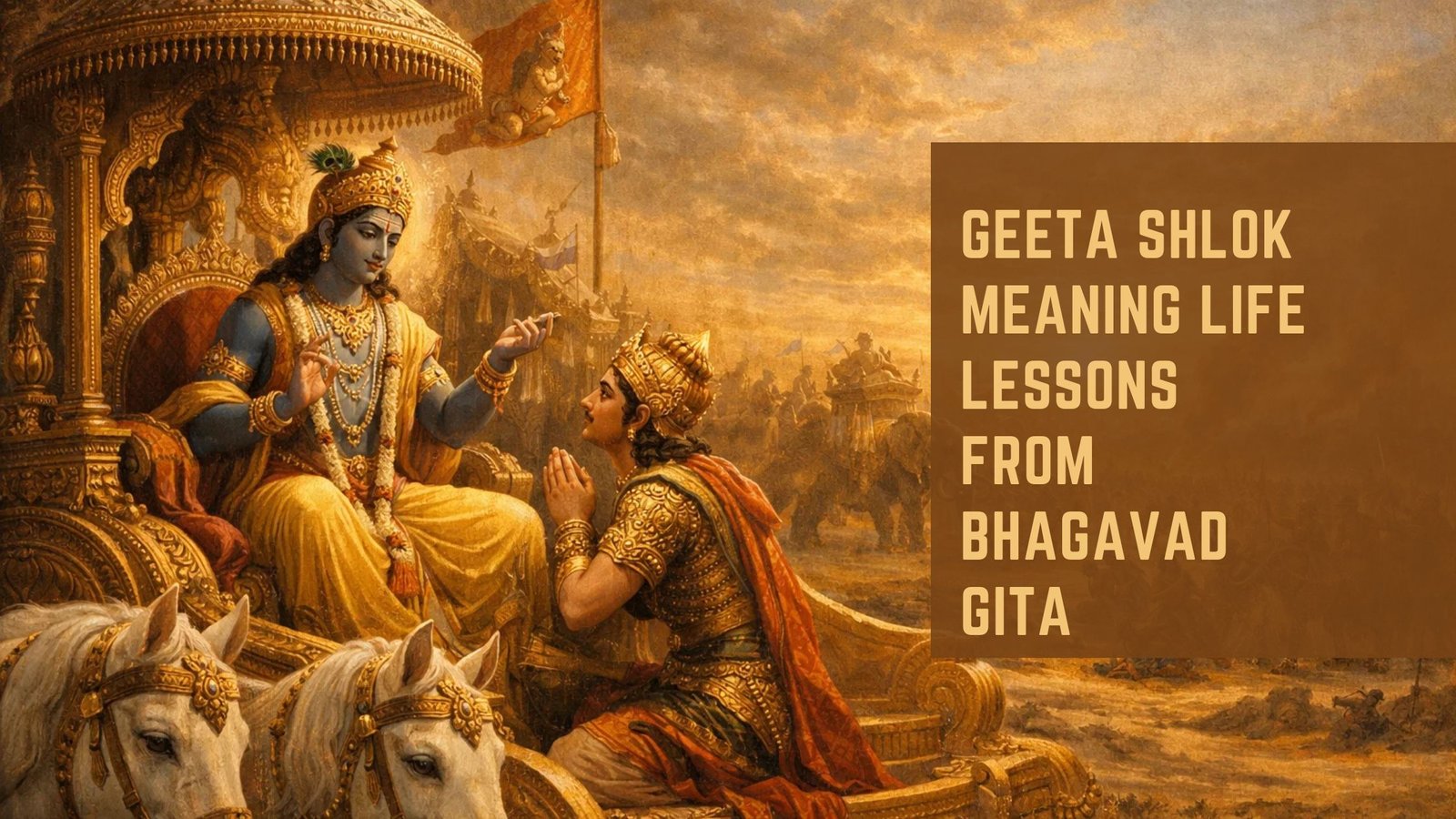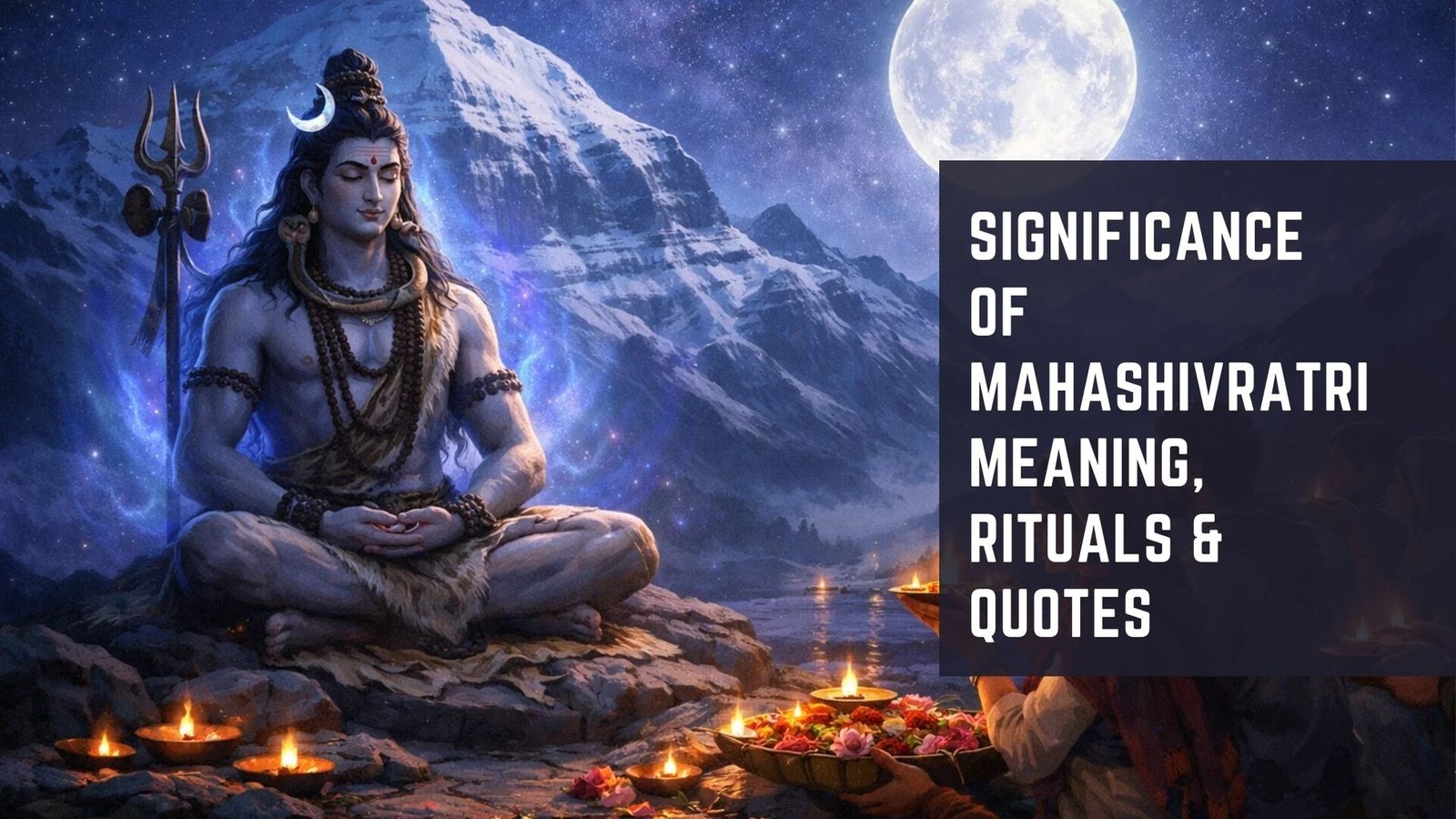In the vast tapestry of Indian philosophy, the Bhagavad Gita stands as a monumental text, revered for its profound insights into the nature of existence, duty, and spirituality. Chapter 4, Verse 7 of the Gita encapsulates a pivotal moment in this dialogue between Lord Krishna and Arjuna, where Krishna reveals the essence of divine intervention in the world. The verse states, “Whenever there is a decline in righteousness and an increase in unrighteousness, O Arjuna, at that time I manifest myself.” This declaration not only highlights the cyclical nature of dharma and adharma but also introduces the concept of divine avatars, which has resonated through centuries of spiritual thought.
The significance of this verse extends beyond its immediate context; it serves as a reminder of the eternal struggle between good and evil. In a world often fraught with chaos and moral ambiguity, Krishna’s promise to incarnate in times of need offers solace and hope. This verse invites readers to reflect on their own lives and the broader societal conditions that may necessitate divine intervention.
It sets the stage for understanding the nature of divine presence and the responsibilities that come with it, urging individuals to recognize their role in upholding righteousness.
Key Takeaways
- Bhagavad Gita Chapter 4 Verse 7 introduces the concept of divine manifestation and the purpose of the Avatar in the world.
- The significance of the verse lies in its explanation of the Avatar’s role in restoring dharma and guiding humanity towards spiritual evolution.
- Understanding the concept of Avatar involves recognizing the divine descent of a higher being into the human realm for the upliftment of humanity.
- Exploring the idea of divine manifestation helps in understanding the divine presence in the world and its impact on human consciousness.
- The verse holds importance in the practice of Bhakti yoga as it emphasizes the significance of devotion and surrender to the divine.
The significance of the verse in the context of the Gita
The significance of Chapter 4, Verse 7 lies not only in its theological implications but also in its practical applications within the narrative of the Gita. This verse emerges at a critical juncture in Arjuna’s internal conflict, where he grapples with his duty as a warrior against his moral qualms about fighting his own kin. Krishna’s assertion serves as a clarion call to Arjuna, reminding him that the preservation of dharma is paramount, even amidst personal turmoil.
It emphasizes that divine intervention is not arbitrary but is contingent upon the collective moral state of humanity. Moreover, this verse encapsulates a central theme of the Gita: the interplay between individual action and cosmic order. Krishna’s promise to manifest himself during times of moral decline underscores the idea that human beings are not alone in their struggles.
The divine presence is always accessible, guiding individuals toward righteousness. This assurance empowers Arjuna—and by extension, all seekers—to act with courage and conviction, knowing that they are part of a larger cosmic plan that transcends their immediate circumstances.
Understanding the concept of Avatar

The concept of Avatar is integral to understanding Chapter 4, Verse 7. An Avatar is often described as a divine incarnation or manifestation that descends to Earth to restore balance and righteousness. In Hindu philosophy, this idea is deeply rooted in the belief that the divine can take on various forms to engage with humanity directly.
Krishna’s declaration in this verse reinforces the notion that divinity is not distant or detached; rather, it is intimately involved in the affairs of the world. The significance of avatars extends beyond mere historical figures; they symbolize the potential for divine qualities within every individual. Each avatar represents different aspects of divinity—compassion, strength, wisdom—encouraging followers to cultivate these qualities within themselves.
By understanding avatars as embodiments of divine principles, individuals can aspire to align their actions with higher ideals, fostering a sense of purpose and connection to the divine.
Exploring the idea of divine manifestation
| Aspect | Metric |
|---|---|
| Number of religions | Various |
| Belief in divine manifestation | Widespread |
| Historical examples | Many |
| Impact on society | Significant |
Delving deeper into the idea of divine manifestation reveals layers of meaning within Chapter 4, Verse 7. The verse suggests that divine presence is not limited to specific moments in history but is an ongoing reality that responds to human needs. This dynamic relationship between humanity and divinity emphasizes that individuals play an active role in inviting divine intervention through their actions and intentions.
Furthermore, divine manifestation can be interpreted as a call for individuals to recognize their own potential for transformation. Just as Krishna incarnates to restore dharma, individuals are encouraged to manifest their highest selves in their daily lives. This reciprocal relationship between the divine and human actions fosters a sense of agency and responsibility, urging individuals to contribute positively to their communities and uphold moral values.
The importance of the verse in the practice of Bhakti yoga
In the realm of Bhakti yoga, or the path of devotion, Chapter 4, Verse 7 holds particular significance. Bhakti yoga emphasizes surrendering to the divine will and cultivating a loving relationship with God. Krishna’s promise to manifest during times of moral decline serves as an invitation for devotees to deepen their connection with him through prayer, devotion, and selfless service.
This verse encourages practitioners to view their devotion as a means of aligning themselves with divine purpose.
The relevance of the verse in modern times

A Message of Hope and Renewal
This verse serves as a reminder that even in times of despair, there exists a possibility for renewal and transformation. It encourages individuals to remain vigilant in their pursuit of righteousness and justice while fostering hope for a better future.
The Call to Action
Moreover, this verse invites modern seekers to reflect on their roles as agents of change. Just as Krishna incarnates to restore balance, individuals are called upon to embody principles of compassion and integrity in their daily lives.
A Universal Message
The relevance of this message transcends cultural boundaries, inspiring people from diverse backgrounds to unite in their efforts toward creating a more just and harmonious world.
Interpreting the verse in the context of personal spiritual growth
Interpreting Chapter 4, Verse 7 through the lens of personal spiritual growth reveals its profound implications for individual journeys. The verse encourages seekers to recognize moments of moral decline within themselves and society at large as opportunities for introspection and transformation. It invites individuals to confront their own shadows and strive for alignment with higher values.
Furthermore, this verse emphasizes that spiritual growth is not solely an individual endeavor; it is interconnected with collective well-being. As individuals work toward their own enlightenment, they contribute to a larger tapestry of spiritual evolution. The recognition that divine presence is always available fosters a sense of belonging and support on this journey, encouraging seekers to reach out for guidance and inspiration from both within and beyond themselves.
The timeless wisdom of Bhagavad Gita Chapter 4 Verse 7
In conclusion, Chapter 4, Verse 7 of the Bhagavad Gita encapsulates timeless wisdom that transcends cultural and historical boundaries. Its teachings on divine intervention, moral responsibility, and personal growth resonate deeply within contemporary society. As individuals navigate their own paths amid challenges and uncertainties, this verse serves as a beacon of hope and guidance.
The enduring relevance of this verse lies in its ability to inspire action rooted in righteousness while fostering a profound connection with the divine. By embracing the teachings encapsulated within this verse, individuals can cultivate resilience, compassion, and purpose in their lives. Ultimately, Chapter 4, Verse 7 stands as a testament to the eternal dance between humanity and divinity—a reminder that even in times of darkness, light will always find a way to manifest.
In a related article discussing the timeless wisdom of the Bhagavad Gita for modern life, the concept of Chapter 4 verse 7 is explored in depth. The verse emphasizes the importance of understanding the true nature of the divine and how it manifests in the world. This article delves into the significance of this verse in guiding individuals towards a deeper spiritual understanding and connection. To read more about this insightful interpretation, visit here.
FAQs
What is the significance of Bhagavad Gita chapter 4 verse 7?
Bhagavad Gita chapter 4 verse 7 emphasizes the concept of divine incarnation and the purpose of the divine taking birth in the material world.
What does Bhagavad Gita chapter 4 verse 7 mean?
The verse states, “Whenever there is a decline in righteousness and an increase in unrighteousness, at that time I manifest myself.” It signifies that whenever there is a prevalence of evil and decline of righteousness, the divine takes birth to restore balance and righteousness in the world.
How does Bhagavad Gita chapter 4 verse 7 relate to the overall teachings of the Bhagavad Gita?
The verse is in line with the overall teachings of the Bhagavad Gita, which emphasize the importance of righteousness, duty, and the divine presence in the world. It reinforces the concept of divine intervention to restore balance and righteousness in the world.
What is the historical and cultural context of Bhagavad Gita chapter 4 verse 7?
The verse is set in the context of the Kurukshetra War, where Lord Krishna imparts the teachings of the Bhagavad Gita to Arjuna. It reflects the historical and cultural belief in the divine incarnating to protect righteousness and uphold dharma (duty/righteousness).














